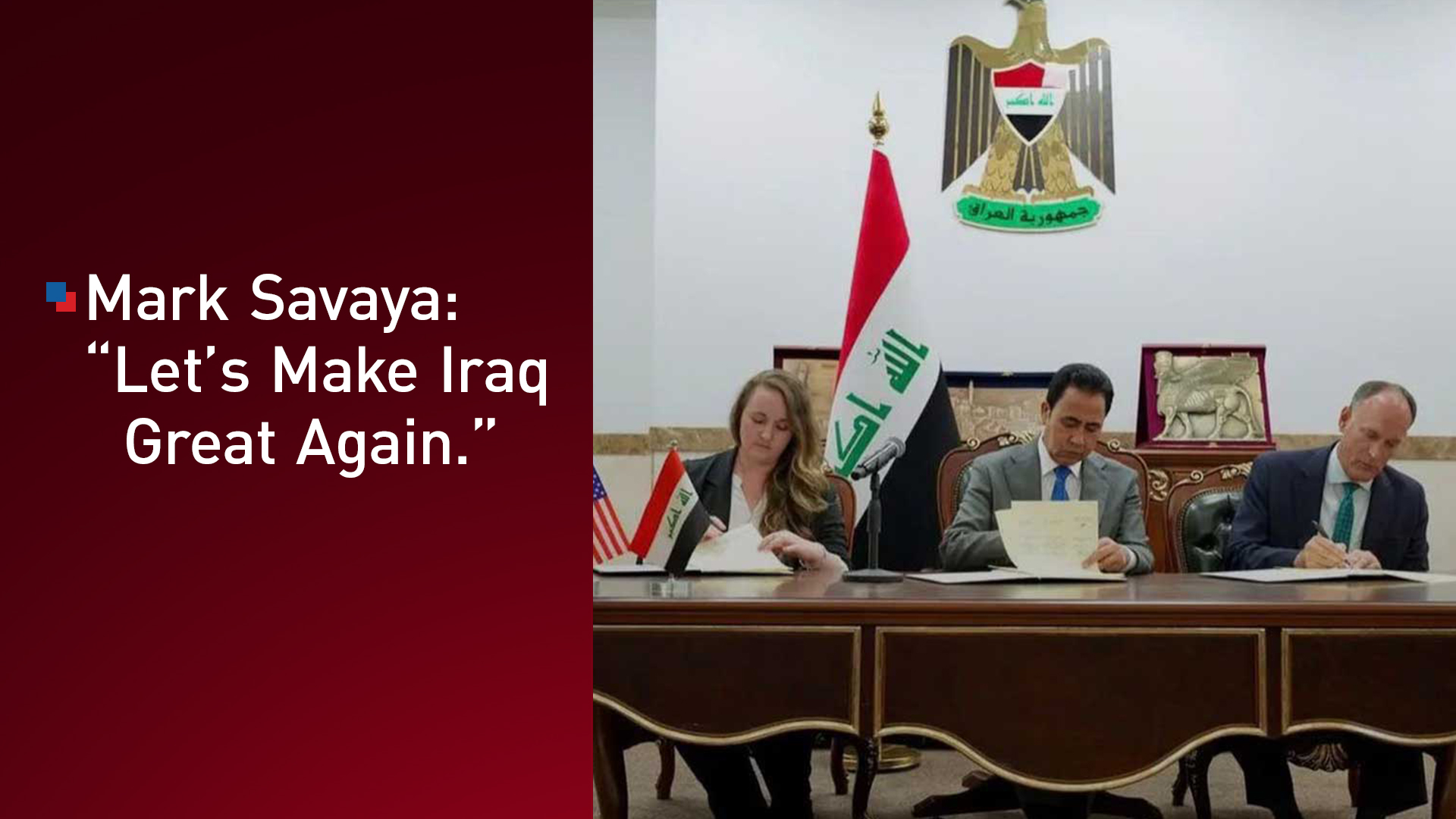U.S. and Iraq Sign Landmark Deal to Establish International Research Center in Mosul
Trump Envoy Hails Agreement as a “Powerful Boost” to Iraq’s Global Revival

ERBIL (Kurdistan24) — In a development hailed as a turning point for Iraq’s academic and cultural revitalization, the United States and Iraq’s Nineveh Governorate have signed a historic Memorandum of Understanding (MoU) to establish an International Research Center in Mosul. The initiative aims to make the city—once ravaged by war—a beacon of learning and global cooperation once again.
U.S. President Donald Trump’s Special Envoy to Iraq, Mark Savaya, announced the signing of the agreement in a post on his official X account, describing it as a “historic milestone” for the people of Nineveh.
He said the Memorandum of Understanding with the United States to establish an International Research Center in Mosul marks a major step toward restoring the city’s global stature.
Savaya added that the initiative would “strengthen avenues of cooperation, elevate Mosul to the ranks of leading cities, and help shape a prosperous and advanced future for generations to come,” concluding his message with the slogan, “Let’s Make Iraq Great Again.”
With pride and great pleasure, we extend our heartfelt congratulations to the people of Nineveh on the signing of a historic Memorandum of Understanding with the United States of America to establish an International Research Center in the heart of Mosul a city regaining its… pic.twitter.com/yp86wOPq8Z
— Mark Savaya (@Mark_Savaya) October 29, 2025
The message echoed Savaya’s now-signature phrase, “I want to make Iraq great again,” which has become central to his diplomatic approach since his appointment.
The slogan, inspired by Donald Trump’s “Make America Great Again,” reflects Savaya’s broader mission to reinvigorate U.S.–Iraq relations and project optimism about Iraq’s long-term stability and potential.
Reviving Mosul’s Role as a Global Center of Learning
The newly signed MoU outlines the establishment of The Academic Research Institute in Iraq (TARII) — a U.S.- and Iraq-registered nonprofit organization formed by a consortium of major American universities and museums. The institute will work in partnership with the Institute for the Study of Ancient Cultures (ISAC) and the Governorate of Nineveh to promote advanced multidisciplinary research in the humanities and social sciences.
TARII’s mission is to address Iraq’s unique cultural, historical, and scientific challenges while fostering collaboration between Iraqi and international researchers.
Its vision is to position Iraq as a regional hub for academic excellence and cultural preservation—bridging local and global research communities.
The Nineveh Governorate has allocated a plot of land on the east side of Mosul for the construction of the institute, which will become the center of its operations.
The University of Chicago, a founding member of TARII, has pledged to support the project’s development and provide institutional expertise.
Officials say the initiative will help rebuild Mosul’s intellectual infrastructure, empower local scholars, and attract international researchers to Iraq—contributing to the city’s scientific and academic prosperity after years of conflict and devastation under ISIS control.
Strategic and Diplomatic Significance
For Washington, the establishment of TARII in Mosul carries both symbolic and strategic importance. It represents a shift from military assistance to cultural and educational engagement, signaling a new phase in U.S. involvement in Iraq—one rooted in long-term development, knowledge exchange, and soft power diplomacy.
Savaya’s emphasis on partnership and reconstruction also aligns with his broader mission to “make Iraq great again”—a campaign aimed at renewing Iraq’s global standing while countering regional instability and militia influence.
Such initiatives could also strengthen Iraq’s sovereignty, diversify its alliances, and deepen ties with the West at a time of increasing competition for influence from Iran.
The MoU reflects a shared commitment by both parties to transform Mosul into a hub of modern education and cultural cooperation. Beyond academia, the project embodies a message of resilience—turning a once-besieged city into a symbol of renewal.
For Savaya, this agreement is more than a diplomatic success; it is a cornerstone of his vision for Iraq’s rebirth. As he put it, “Let’s make Iraq great again.”